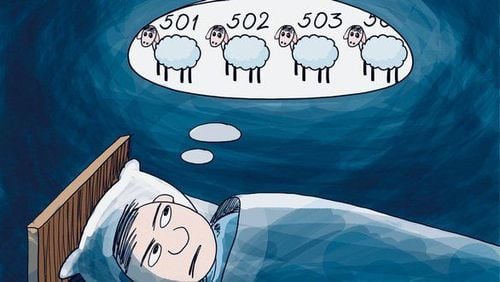1. Why Is Sleep Deprivation Harmful to Your Health?
Sleeping only 5 or 6 hours is not a healthy idea. Sleep deprivation has numerous negative impacts, such as irritability and reduced productivity. However, many people are unaware of its profound effects on physical health.
Statistics reveal that one in three individuals frequently experiences insomnia or stress. The rise of technology, electronic devices, and busy work schedules are often cited as contributing factors. However, the consequences of chronic sleep deprivation extend beyond poor mood or lack of focus. Insufficient sleep heightens the risk of serious health issues, including obesity, cardiovascular diseases, and type 2 diabetes, which are leading causes of reduced life expectancy. Clearly, quality sleep is vital for a long and healthy life.
Most people require approximately 8 hours of sleep per night for optimal functioning, but individual needs may vary. The key is to determine how much sleep your body needs and strive to achieve it consistently. As a general rule, if you wake up feeling fatigued or find yourself yearning for naps during the day, it’s likely that you’re not getting enough sleep.
Numerous factors can contribute to poor sleep, including health conditions like sleep apnea. However, in many cases, the issue lies in poor sleep habits.
Occasionally, one sleepless night might leave you feeling tired and irritable the next day without long- term harm. However, repeated nights of insufficient sleep can lead to progressively severe mental and physical effects. Your brain may function inefficiently, making it harder to focus or make decisions. Many individuals experience low mood or even doze off during the day. The risk of accidents at home, work,or on the road also increases.
Prolonged sleep deprivation can severely impact overall health, increasing susceptibility to conditions like obesity, heart disease, hypertension, and diabetes. Below are seven reasons why you should avoid chronic sleep deprivation:
• Sleep Boosts Immunity: A weakened immune system can be a direct consequence of inadequate sleep. Persistent sleep deprivation can compromise your immune defenses, making you more prone to infections like colds and flu.
• Sleep Helps Maintain a Healthy Weight: Sleeping fewer hours is linked to weight gain. Studies suggest that individuals who sleep less than 7 hours per night are more likely to gain weight and have a higher risk of obesity. This is attributed to decreased leptin (a hormone signaling fullness) and increased ghrelin (a hormone triggering hunger).
• Sleep Enhances Mental Health: Even one sleepless night can make you irritable or moody the next day. Chronic sleep deprivation is associated with long-term mental health disorders, including depression and anxiety. Surveys show that individuals with such disorders often sleep less than 6 hours per night.

• Sleep Reduces the Risk of Diabetes:
Research indicates that individuals sleeping less than 5 hours per night are at a higher risk of developing type 2 diabetes. Sleep deprivation appears to disrupt the body’s ability to process glucose efficiently.
• Sleep Increases Libido: Both men and women with insufficient sleep tend to have reduced libido and lower interest in sexual activity. Sleep disorders like sleep apnea can decrease testosterone levels, further diminishing sexual drive.
• Sleep Protects Heart Health: Chronic sleep deprivation has been linked to increased heart rate, elevated blood pressure, and higher levels of inflammatory markers, all of which put additional strain on the heart.
• Sleep Supports Fertility: Difficulty conceiving may be another consequence of insufficient sleep in both men and women. Disrupted sleep patterns can lower reproductive hormone levels, impairing fertility.
If you’re not getting enough sleep, the only way to recover is to sleep more—and it may take time to reverse the effects of long-term sleep deprivation. Start by adding 1 or 2 extra hours of sleep per night, allowing your body to naturally wake up in the morning. Initially, you might sleep up to 10 hours a night, but your sleep duration will gradually normalize. Avoid relying on caffeine or energy drinks as short- term fixes. While they may provide temporary focus and energy boosts, these stimulants can disrupt your circadian rhythm, exacerbating sleep problems in the long run.
2. Is 5 Hours of Sleep Enough? How Much Sleep Do You Need?
2.1. Is 5 Hours of Sleep Sufficient?
The demands of a busy life may sometimes prevent us from getting enough sleep, but sleeping only 5 hours a day is insufficient, especially over the long term. A 2018 study involving over 10,000 participants found that less than 7 to 8 hours of sleep per night significantly impairs cognitive function, including verbal reasoning, problem - solving, and decision-making skills.
To perform optimally in tasks such as:
• Communication
• Planning
• Decision-making

2.2. Recommended Sleep Durations
Many people fail to achieve adequate sleep. According to the CDC, over one-third of American adults consistently sleep less than required. The National Sleep Foundation provides the following sleep recommendations for healthy individuals without sleep disorders:
• Newborns: 14–17 hours
• Infants: 12–15 hours
• Toddlers: 11–14 hours
• Preschoolers: 10–13 hours
• School-aged children: 9–11 hours
• Teenagers: 8–10 hours
• Young adults: 7–9 hours
• Adults: 7–9 hours
• Older adults: 7–8 hours
2.3. Symptoms of Sleep Deprivation
Immediate symptoms of sleep deprivation include:
• Excessive sleepiness
• Frequent yawning
• Lack of focus
• Irritability
• Daytime fatigue
• Forgetfulness
• Anxiety
Prolonged sleep deprivation can exacerbate thesesymptoms and may even lead to hallucinations.
Health risks associated with chronic sleep deprivation include:
• Accelerated Brain Aging: A 2018 study revealed that severe sleep deprivation (less than 4 hours per night) impairs cognitive functions at levels equivalent to nearly 8 years of aging.
• Increased Risk of Diabetes: Research from 2005 linked insufficient sleep (6 hours or less) to a heightened risk of developing diabetes.
• Premature Death: A 2010 meta-analysis indicated that inadequate sleep raises the risk of early mortality.
• Heart Disease and Stroke: A 2011 review of 15 studies found that sleeping fewer than 7 hours per night significantly increases the risk of cardiovascular disease and stroke compared to sleeping 7–8 hours.

According to the American Academy of Sleep Medicine, common causes include:
• Underlying Health Conditions: Persistent sleep disturbances due to disorders such as insomnia or sleep apnea.
• Behavioral Insufficient Sleep Syndrome: Deliberately delaying sleep for other activities, such as watching TV.
• Work Schedules: Irregular or extended work hours can disrupt sleep patterns.
• Personal Obligations: Responsibilities such as caregiving for children or elderly parents. Sleep is crucial for maintaining good health. Chronic sleep deprivation reduces brain performance and increases the risk of severe health issues, including cardiovascular disease, stroke, and diabetes.
Experts agree that 5 hours of sleep per day is insufficient and should not be maintained long-term. Aim for 7–8 hours of sleep per night to stay healthy. Practice good sleep hygiene to achieve a restful night’s sleep.
Please dial HOTLINE for more information or register for an appointment HERE. Download MyVinmec app to make appointments faster and to manage your bookings easily.
Reference sources: nhs.uk, healthline.com, greatist.com












